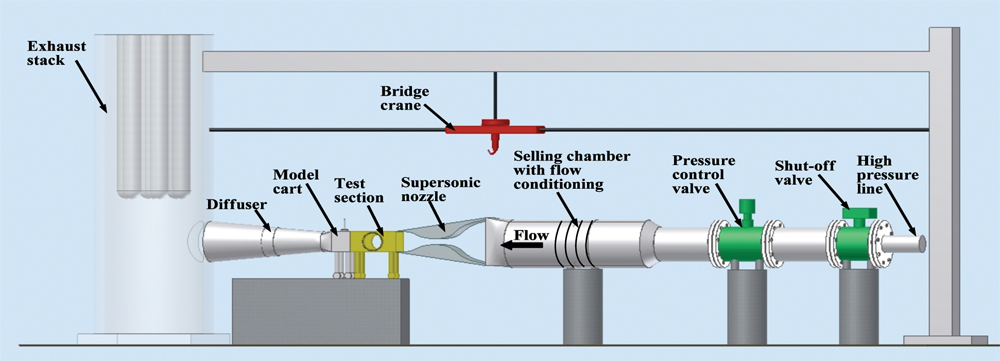
A multi-university research center headquartered at The Florida State University has received a major grant that will enable it to pursue advances in aviation and aerospace technologies.
The Florida Center for Advanced Aero-Propulsion (FCAAP) has been awarded a National Science Foundation grant worth approximately $3.3 million to fund the development of a “next-generation polytonic wind tunnel” at the center’s soon-to-be-completed Tallahassee facility.
“The wind tunnel will create a unique shared resource to produce fundamental advances in gas dynamics and material science, as well as to develop transformational flow-control technologies,” said Farrukh Alvi, a mechanical engineering professor at the Florida A&M University-Florida State University College of Engineering and the director of FCAAP. “The facility will thus produce critical knowledge while dramatically accelerating transformative research leading to next-generation designs.”
When built, Alvi said, the wind tunnel will have a test section 12 inches by 12 inches by 24 inches in size. It will be able to generate wind speeds ranging from Mach 0.3 to Mach 5 — roughly 200 mph to 1,500 mph.
“The new facility will be large enough to attract industry use, yet small enough to be efficiently operated by university researchers,” Alvi said. “It will engage students from numerous disciplines addressing fundamental and practical problems, as well as developing and applying state-of-the-art diagnostics.”

Schematic of the PSWT and subsystems
Housed at Florida State, the polytonic wind tunnel will also leverage and augment FCAAP’s resources while transforming the science and engineering of active flow, noise control and related fields. FSU is currently building a $22 million research building that will house both FCAAP and the wind tunnel. The facility will be equipped with state-of-the art systems to ensure efficient, sustainable, long-term operation.
The Florida Center for Advanced Aero Propulsion is a multi-university, statewide Center of Excellence established by the Florida Legislature in 2006 and led by Florida State. The center, which also includes the University of Central Florida, the University of Florida and Embry-Riddle Aeronautical University, leverages the resources of its partner universities to create an unrivaled pool of aerospace talent, expertise and physical infrastructure.
“This is another recent example of the benefit of having a state-funded Center of Excellence, which combines our resources,” Alvi said. “I believe that our collaborative approach set us apart and enhanced our chances of winning a significant award in a competitive program such as the National Science Foundation’s Major Research Instrumentation Program.”
The desired results of this multi-university collaboration include the creation of hundreds of young scientists and engineers, as well as the design and development of new technologies and products that solve problems faced by industry and government. FCAAP also serves as an incubator to transition the technology to applications in a timely and efficient manner. Through its government and industry partners, the center strives to become the “go-to” center in aerospace-related areas for Florida, the region and the nation.




